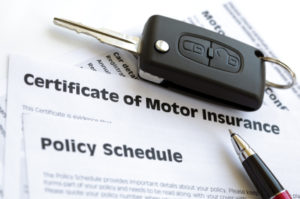How To Get The Best Auto Insurance That Fits You

Auto insurance is not a “one size fits all” purchasing decision. Instead, you need a good basic understanding of what your insurance needs areand what qualities make an excellent auto insurance company. Once you understand those things, then you can shop for the best prices and make an informed purchasing choice. Enter your ZIP into our FREE quote comparison tool and start saving today!
Determining Your Car Insurance Needs
Not every consumer needs all the types of auto insurance policies available. In fact, a smart shopper will know exactly what their car insurance needs are before they begin requesting insurance premium quotes. You can save money simply by only buying the type and amount of insurance you really need.
Liability Insurance
Liability insurance is mandatory in 47 states. If you only buy minimum amounts of liability insurance, you probably will not be spending a great deal of money. However, you probably also will not have enough coverage to really protect you if you get in an accident.
Liability insurance pays for damages and injuries to the other driver if you cause an accident. It does not pay for damages to your car or for medical treatments that you or your passengers may need.
If you do not have enough liability insurance to pay for the damages or injuries, you will be held accountable for the remaining expenses.
If you own a house or a business or have other assets, they may be vulnerable if you are sued because you do not have enough liability insurance. It is estimated that the average accident will cause in excess of $100,000 in property damage. This number escalates dramatically if injuries or fatalities are involved and may reach costs in excess of $1 million.
Collision Insurance
Collision insurance is not legally required, but if your car is leased or you have an auto loan on it, your lender will require you to purchase this type of insurance. Collision auto insurance pays for damages to your car if you are involved in an accident.
It does not matter if you are personally driving the car, so coverage extended to anyone you give permission to drive your car. Collision car insurance pays for damage that is the result of hitting another vehicle, buildings, fences and other objects.
Comprehensive Insurance
Comprehensive auto insurance is another type of insurance that you will be required to purchase if your car is leased or financed. It is not required by law. Comprehensive car insurance pays for damage to your car that is not the result of hitting something.

Instead, it covers damages that are the result of other events. Examples include hitting animals, hail, fire and flood damage. It also pays for damage that is the result of tree limbs falling on your car or if your car is damaged due to vandalism or stolen.
Uninsured/Underinsured Motorist
Although most states require liability insurance, the reality is that many drivers are driving illegally and do not carry this insurance. Additionally, while they may have liability insurance, they may carry only the mandatory amount required by law or inadequate amounts of coverage.
Uninsured motorist insurance provides coverage for repairs and injuries that may result if you are hit by someone who does not have liability insurance. This allows you to receive medical treatment or get repairs to your car or property without having to file a lawsuit yourself. Your insurance company will use legal means to collect their losses from the other driver.
Underinsured motorist insurance works in a similar fashion if you are hit by someone who does not have adequate insurance to pay for all of the expenses associated with an accident they cause.
Personal Injury Protection
Personal injury protection is mandatory auto insurance coverage in 16 states, in addition to liability car insurance. Personal injury protection is sometimes called PIP or additional medical coverage. It is also known as “no fault” auto insurance.
Personal injury protection provides payment for medical treatments regardless of who is at fault in an accident. It pays for hospital expenses, doctor visits and rehabilitation. Additionally, it can be used to pay for lost wages and legal fees.
Gap Insurance
Gap insurance is not mandatory legally or required by lenders. However, if your car is financed or leased, you might consider purchasing it for your financial protection. If your car is involved in an accident and declared a total loss, you will only be paid for the value of the car at the time of the loss.
This amount of money is often far less than your car loan or the balance of your lease amount. However, despite this difference, lenders will expect you to pay the total amount due, regardless of whether the car is declared a total loss or you can drive it down the street.
Gap insurance pays the difference – or gap – between the loss amount you are paid and the balance of your loan or lease. This frees you from the financial obligation of paying that loan or lease.
Methods to Lower Your Premiums
With a good understanding of the basic types of car insurance, you can then begin to look for the best rates possible. You can find car insurance premium rate quotes through auto insurance comparison, independent insurance brokers or from insurance comparison websites. There are also a number of ways you can lower your rates if you know the right questions to ask.

Discounts – Many auto insurance companies offer a wide number of auto insurance discounts and you may be surprised to discover that you qualify for several discounts that can all be applied to your premium rates. Common discounts include good driver, good student, older driver, safety equipment, car recovery equipment and driver improvement courses.
Payment Options – Insurance companies will frequently lower your rate if you pay your entire premium at one time, rather than quarterly or monthly.
Additionally, you may also receive a discount if you pay your premium automatically with a credit card or automatic checking account withdrawal.
Evaluate Your Real Needs – If you own an older car, you probably do not need to carry more than liability and personal injury protection car insurance. If your car is involved in an accident and the repairs are more than the value of the car, you will only be paid the value of the car at the time of the loss.
In most cases, the expense of carrying comprehensive and collision insurance are far more expensive than what you will be paid if the car is in an accident. Try our FREE quote comparison tool today by simply entering your ZIP!
Final Thoughts
By understanding the different types of auto insurance, you can make informed choices about how much and what type of insurance will best fit your needs. With that information in hand, you can begin to compare premium rates and find the best car insurance that fits you. When you compare rates, be sure to look at quotes from at least three companies and compare the same type of insurance, same level of coverage and same deductible amounts for an accurate evaluation.
